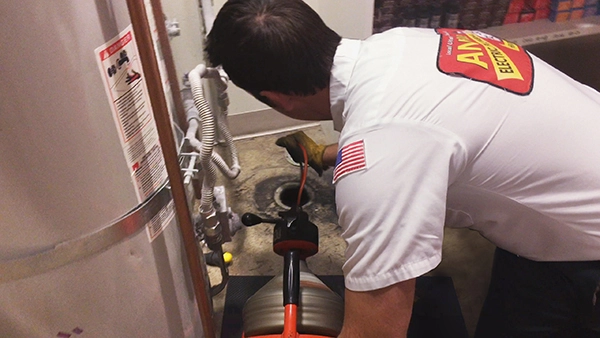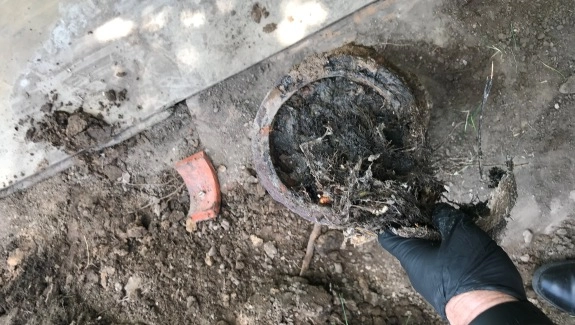Gurgling sounds: A drainage system that's installed right has a specific ratio of slope and venting. If you ever hear a gurgling noise that means the ratio is out of balance. You might hear something like that when you flush your toilet or drain your sink. That could mean something is blocking the pipes, trapping air inside. When new water goes down, the air pushes back and makes the gurgle.
Water backup: If you notice water backing up in your sinks, showers, or toilet, that’s not normal. All your home’s drains rely on the main sewer line, so if it breaks it can leave you with constant backups. Also, if several drains in the home have issues on the lowest level, there's a high chance of a bigger problem.

Slow-moving or Clogged Drains: If your drains aren't moving as fast as they used to or getting clogged often, it could be as simple as a clump of hair. But it could be an indicator of a bigger problem. When the sewer main line breaks or clogs, it can make it hard for wastewater in the pipes to make it all the way down. This can result in slow drainage and potential overflow.
Soggy or wet patches in your yard: When your sewer main line breaks, it can cause wastewater to leak out into the ground. This can result in soggy or wet patches appearing in the yard. These patches may also have a strong, unpleasant odor. And though it may be surprising, the grass can grow much greener and taller there. The water and nutrients feed the grass more than the rest of the yard. So, if you see a patch of tall grass in soggy ground, it might be worth checking out.
